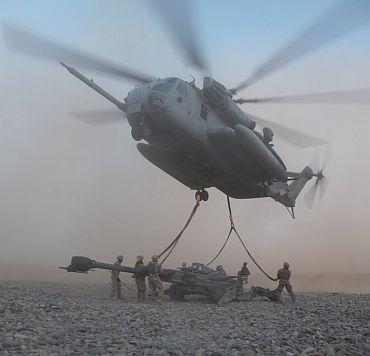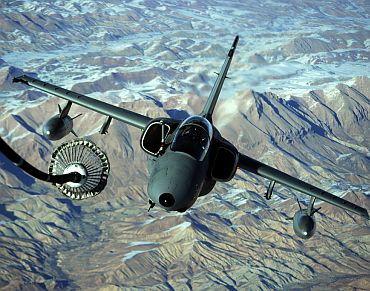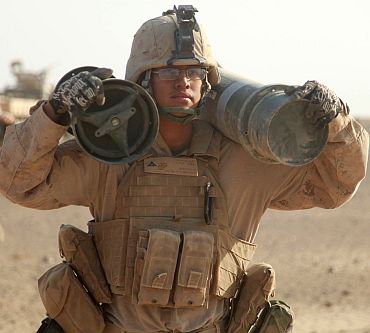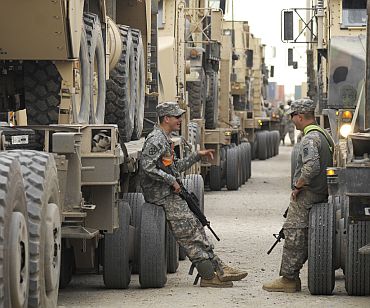
The United States has moved hundreds of new troops to the Afghan area bordering Pakistan's insurgent-infested North Waziristan tribal region along with heavy artillery, helicopter gunships and sealed movement on the border, local media reports in Islamabad said.
US forces deployed to new positions in the border areas facing Ghulam Khan in Pakistan between Saturday and Sunday night.
The troops occupied nearby vantage heights on hilltops, setting up observation posts, The News International said, quoting Pakistani security officials and tribal elders.
...

Geo television reported that tribesmen living in the border areas said Afghan and US authorities had clamped a curfew in parts of Afghanistan's eastern Khost province and started house-to-house search.
The villagers in Ghulam Khan said NATO warplanes were also seen flying over the border region several times during the day.
The News reported that the abrupt deployment of US forces near the border area with Pakistan has escalated tension in the militancy-plagued North Waziristan tribal region as US forces immediately sealed the main road connecting Pakistan border town of Ghulam Khan and Khost for traffic.
Click on NEXT to go further...

Pakistani security officials in North Waziristan confirmed the latest development and said they were monitoring the situation on the border with Afghanistan, The News reported.
There is no word from the US and NATO forces on the Pakistani media reports.
The American troop movement has been reported as US unmanned spy planes have stepped up strikes in the Waziristan tribal belt over the past few days. Washington has said that North Waziristan is a haven for members of the Haqqani network.
Washington Post quoting US officials has said that US has opened a new more aggressive approach towards the dreaded Haqqani network.
Click on NEXT to go further...

"The Obama administration has launched the opening salvos of a new, more aggressive approach towards an Afghan insurgent group it asserts is supported by Pakistan's government," the report said.
The post quoted officials as saying that the new operation may include intensified drone strikes on Miranshah, centre of North Waziristan and was made "at a National Security Council meeting chaired by President Obama two weeks ago."
It is intended to 'send a signal' that the United States would no longer tolerate a safe haven for the most lethal enemy of US forces in Afghanistan, or Pakistan' s backing for it, the paper said.
Click on NEXT to go further...

Military options debated at the September 29 meeting were set aside for now, including the possibility of a ground operation against Haqqani leaders similar to the raid that killed Osama bin Laden in May.
Although the administration has left the raid option on the table, the potential negatives of such an operation -- including the possible collapse of Pakistan's military leadership and civilian government -- are seen as far outweighing its benefits.
The massing of US troops and the sealing of the border, Pakistani media claimed had stranded more than 900 loaded trucks, including those carrying NATO consignments, and passenger vehicles the whole day.
Click on NEXT to go further...

Tribal elders of the Gurbaz tribe inhabiting both sides of the Durand Line said US forces had clamped a curfew in Tarkhobi area and asked villagers to stay at home.
They also claimed that US and Afghan forces had launched house-to-house search but were clueless about any arrests made during the search operation.
However, they did not want to publicly comment on the closing of the Pak-Afghan border by US forces.
Government functionaries in Miramshah said more than 900 heavy-loaded vehicles carrying various items to Afghanistan had been stranded on the Ghulam Khan road.
Tribesmen in North Waziristan were concerned about the arrival of US forces at their doorsteps, but said they did not expect the troops to cross the border.